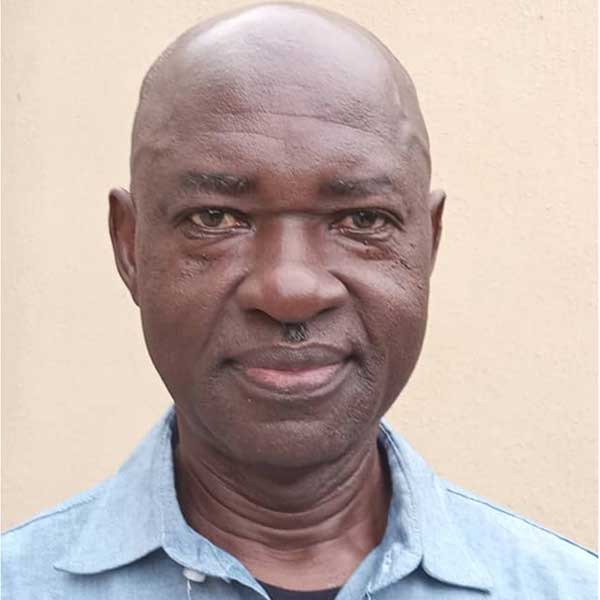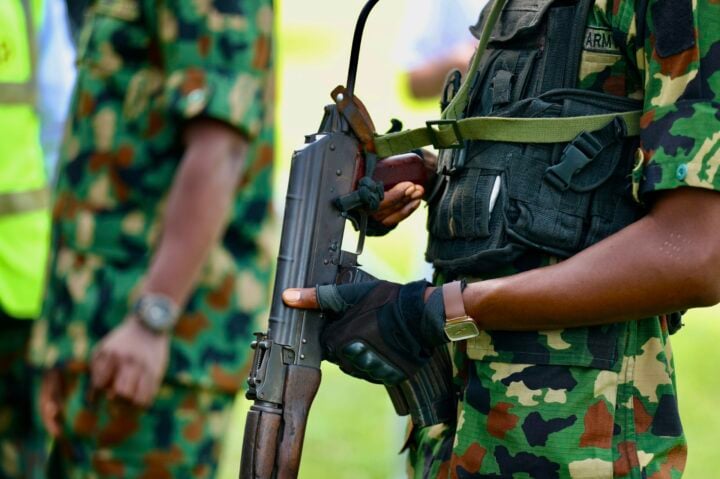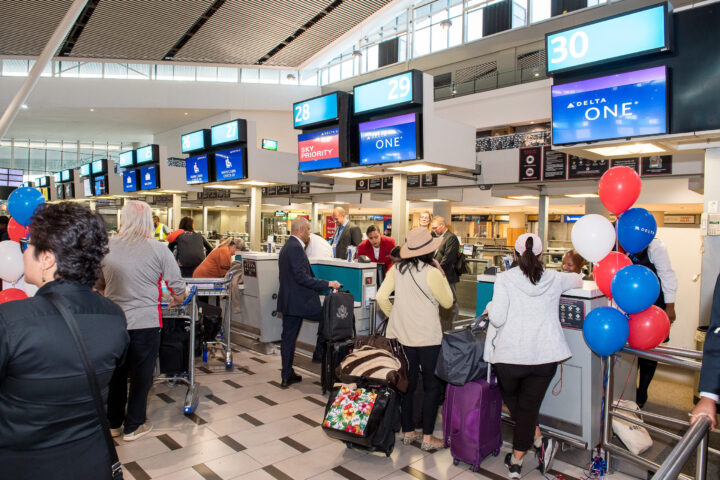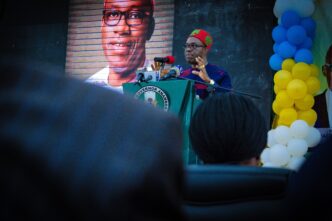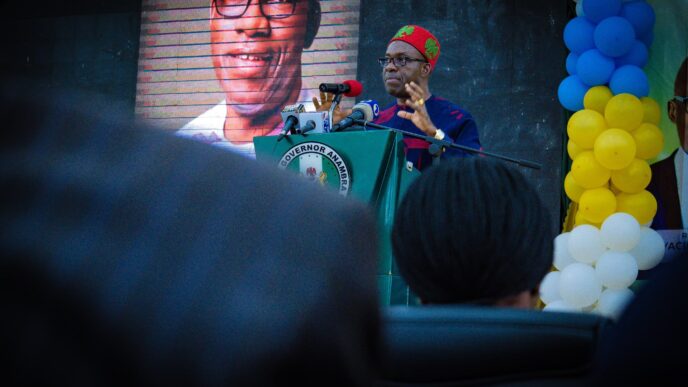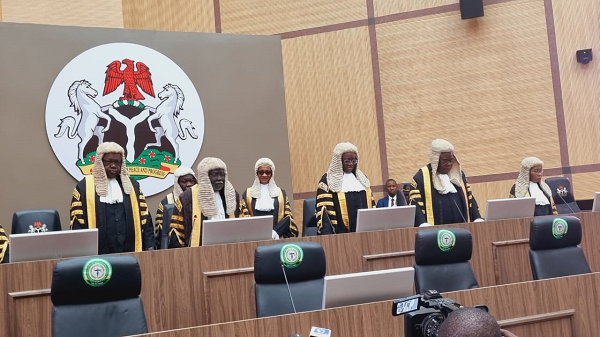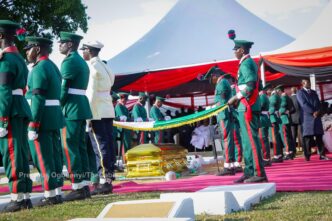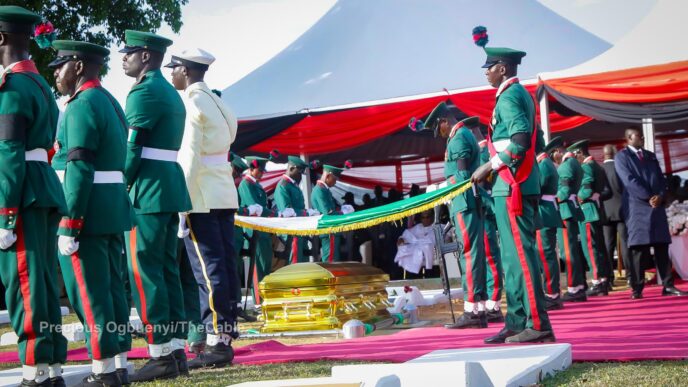“It isn’t just knowledge of impending terrorist attacks that is needed. It is also essential to gain knowledge of the root causes of terrorism and what makes terrorists tick. Among the questions to which answers are needed are: is terrorism a ‘collectively rational strategic choice’, as claimed by the distinguished terrorism expert Martha Crenshaw? Is it possible to make sense of the motives and actions of extremist groups like ISIS? Is empathy possible or appropriate when it comes to understanding terrorist motivations and actions? What are the causes of radicalisation, and how does radicalisation lead to terrorism? What is the role of imagination in our ability to predict future terrorist attacks?” A quotation from the abstract of a research report, “Rethinking the Philosophy of Terrorism”, by the Department of Philosophy, University of Warwick, United Kingdom.
Surely, having grappled with the twin monsters of terrorism and quantum violence for too long, Nigeria can’t seriously avoid a more introspective, elevated approach in its efforts to successfully combat them. Not few citizens wonder, many times openly, about the prospects of actually ending the hurdles that increasingly appear insurmountable. Last week, the Defence Headquarters in Abuja confirmed what it termed the emergence of a terror group in the north western states of Sokoto and Kebbi, a situation it promptly attributed to the breakdown of the cooperation between Nigeria and Niger Republic that had existed before the military coup which ushered in the present government in Niamey. Meaning, the joint border patrols of the Nigerian and Nigerien militaries, among other measures, successfully kept the ‘lakurawas’ at bay.
That explanation enjoyed the monopoly of credibility and currency for a while in the broader public space until additional information filtered in. Last Monday, Bulama Bukarti, a security expert who has worked extensively on relevant issues within the region and elsewhere, told viewers of “Politics Today” on Channels Television that the statement by the military authorities wasn’t all there was to the story. As he put it, “the group that is called ‘lakurawa’ today has been sporadically living or camping in the north western part of Nigeria for over six years now. They first started illegally entering Nigeria around 2016, 2017 but they did not stay permanently.
“What they do – and that’s what they still do today – is that they move in, stay for a few months, and then they go back to the Sahel or wherever they are coming from in Niger. They are not a new group. In 2018 or so, the Nigerian Army fought the same group and pushed them back to the Niger Republic. This group has been camping in north western Nigeria since 2016-2017.” Bukarti’s intervention was immediately corroborated by a chieftain of the Arewa Consultative Forum (ACF), Prof. Tukur Muhammad-Baba, on the same show.
Advertisement
In very unsettling ways, Nigerians have become accustomed to the reactions of security authorities to terrorists and other agents of largescale catastrophe: “They will be neutralised within the shortest possible time.” “Citizens should go about their lawful duties.” “We’re on top of the situation.” “No stone will be left unturned in this fight.” In this particular case, the public has received an assurance that the troops are already “locating them and eliminating the threat.” And that there are “sustained Intelligence, Surveillance and Reconnaissance (ISR) to degrade the terrorists.”
But the realities on ground do not validate those sureties, unfortunately. Some local government areas in the two states are said to be under the control of these agents of destabilisation. Nigerians usually either get angry at those whose job it is to protect lives and property or give in to hopelessness. Or both. But self-defeat or pity isn’t the right way to go. As that study suggests, only a clinical assessment of the root causes and the operations of these often-underrated elements can give us any hope of stopping them in their murderous tracks.
How the entire mess started should be of interest to everyone. The unfolding national tragedy, being largely viewed as regional at the moment, has somewhat transactional, mutually-agreed beginnings. The felons initially stepped in to fill the vacuum created by the inability of official machineries to rise to the occasion. For many years, while Boko Haram held the north east of Nigeria under its armpit, the north west remained relatively peaceful. Until banditry showed up there and also moved southwards to the country’s central region.
Advertisement
The bandits turned out to be as ferocious as their counterparts operating in the north east. Cattle rustling, one of their distinctive trademarks, hit the very soul of the economic livewire of the zone. It soon became clear that soldiers who were already overwhelmed by their own constitutional responsibilities of defending the nation’s territorial integrity and the wartime protection of citizens’ lives weren’t in any position to guarantee the safety of cows. Seeking extra-statutory help, therefore, became inevitable. That was how the services of ‘lakurawas’ were secured. The risk level in that kind of gamble certainly didn’t mean much at the time. At least, not to the individuals and families whose livelihoods seemed to have been shielded from the ruthless rustlers.
But there’s no doubt that it does now. Some victories were recorded, don’t forget, just enough to secure some trust. The honeymoon between the victims of banditry and their ‘saviours’ didn’t last, however. How could it? The biodata of these merchants of horror ought to have sent signals to whoever cared to observe that that relationship would not end well. The membership of ‘lakurawa’ is derived largely from different tribes in Niger, Mali and Libya, who were actively involved in the violent anti-government crusades that sought to bring those countries to their knees. What manner of solutions could such backgrounds of rebellion, chaos and bloodshed produce?
Not unexpectedly, the toga of faith first endeared them to the locals. Religion can truly be the opium of the masses. Karl Marx was right, after all. And then, the collateral consequences began to roll in. The terrorists have started imposing their own brand of Shariah laws which, of course, is strange to the host communities. Men who dare to shave their beards, maintain certain hairstyles, listen to ‘sinful’ music are beaten up randomly. Government officials are being abducted. Security operatives are now viciously attacked. The ‘lakurawas’ collect religious taxes, zakat, freely and often confiscate animals to enforce compliance. Their victims have had to make peace with extortion. It’s truly a developing story of conquest.
Even more significant is the report that the indoctrination of the Nigerian citizens may have begun with the preaching by the intruders translated into familiar languages like English, Hausa, Fulfulde, Tuba, Kanuri and Tuareg. Clearly, these visitors are not prepared to leave anytime soon. Neither are the frightening prospects of their continued stay showing signs of abating. The initial benevolence has since given way to the strong arm.Where we are now is to avoid the mistakes of the past. When Boko Haram metamorphosed into a deadly sect in 2009, some people could only read that to mean a concerted strategy by the north to make the country ungovernable for President Goodluck Jonathan. It didn’t matter to such people that some other presidents before him had also had to tackle insurgency.
Advertisement
This time, President Bola Tinubu and the affected governors should wake their teams up and save Nigeria from yet another era of fear and dysfunctionality that’s threatening to worsen the country’s numerous challenges. More government presence is needed urgently. Meaningful youth engagement. Adequate, motivated uniformed personnel. Superior arms and ammunition. Smart technology. And, please, enough of rhetoric!
Ekpe, PhD, is a member of THISDAY Editorial Board.
Views expressed by contributors are strictly personal and not of TheCable.
Add a comment
